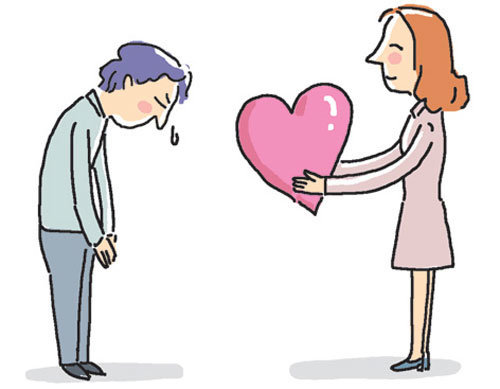An offender’s wounds
An offender’s wounds
Posted October. 20, 2021 07:30,
Updated October. 20, 2021 07:30

There are people who are generous, even to those who have hurt them. Marianne, a female protagonist in “Normal People,” a novel written by Irish writer Sally Looney, is such a person. Marianne was always bullied at school, especially by two male students. One of them insulted Marianne by calling her small breasts as flat chests where other students were clustered and whispering in their ears insulting remarks. They even did more horrible things to her, which happened when Marianne was eighteen years old.
She forgives them a few years later after graduating high school. Although one of the offenders died, making it impossible for her to forgive, Marianne stops holding grudge against him as soon as the other boy apologizes.
Marianne wished that she had forgiven them earlier; the dead boy must have felt sorry, too. She can be compassionate because not only the victim but also the offender is wounded; in fact, the offender might have been inflicted with more grievous harm than the victim. “The cruelty does not hurt the victim only; it may do even deeper, everlasting damage to the offender.” As odd as it may sound, this thought is possible if we presuppose human beings as good and ethical existence. Marianne believes that the victim learns from hurt and suffering and the offender “acquires a knowledge of something unforgettable” through his wrongdoing. This very belief that both the offender and victim can learn and transform through wounds is why she pities those who have done wrong to her.
Given our sadistic culture where those who are not at all victims throw rocks at the offender as though intent on killing the offender, Marianne’s optimism may seem naïve to some extent. However, the remarkable generosity demonstrated by Marianne, the victim of a wrongdoing, and the offender’s good and ethical nature presupposed by the very generosity of the victim are all part of the innate nature of human beings, and they are what make human beings noble.







